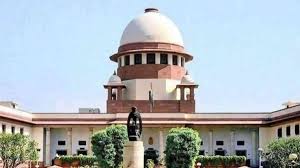
The Supreme Court has emphasized a non-discriminatory stance regarding mob lynching cases, urging states not to overlook incidents based on religion or caste. In a recent hearing, the court granted six weeks to states and union territories to detail their actions taken to address mob lynching and hate crimes, aligning with directives from a 2018 judgment.
The court’s response came during a hearing on a petition filed by the National Federation of Indian Women, highlighting nearly 50 hate crimes post the 2018 Tehseen Poonawalla case judgment. The petition pointed out instances where state actions were either absent or insufficient.
One notable omission cited during the hearing was the case of Kanhaiya Lal, a tailor in Rajasthan’s Udaipur who was brutally murdered in 2022. The incident, linked to a hate crime, involved assailants slitting Lal’s throat due to his support for a social media post deemed offensive to Prophet Muhammad.
Senior advocate Archana Pathak Dave, representing the Gujarat government, highlighted the petition’s focus on hate crimes against Muslims, which led to the exclusion of the Kanhaiya Lal incident. The court, however, stressed the importance of addressing all instances of mob lynching regardless of the targeted community.
The bench, led by Justice BR Gavai, noted that the petition’s statistical data predominantly highlighted hate crimes against Muslims. The court underscored the need for a broader approach, ensuring all cases are brought to light without bias.
The court also scrutinized responses from states, particularly citing incidents from Madhya Pradesh and Haryana where actions against perpetrators were questioned. In one instance, the court criticized the invocation of charges under the cow preservation act without proper investigation.
The 2018 Poonawalla judgment emphasized the state’s duty to protect citizens from mob violence and lynching. It mandated the appointment of nodal officers to prevent such incidents, automatic FIR registration in relevant cases, and the establishment of compensation schemes for victims.
The court’s directive to states to provide comprehensive responses on highlighted hate crimes reflects its commitment to curbing mob violence and ensuring justice for victims. The matter has been adjourned to July, awaiting states’ detailed reports on their actions taken in response to hate crimes.
Sources By Agencies

